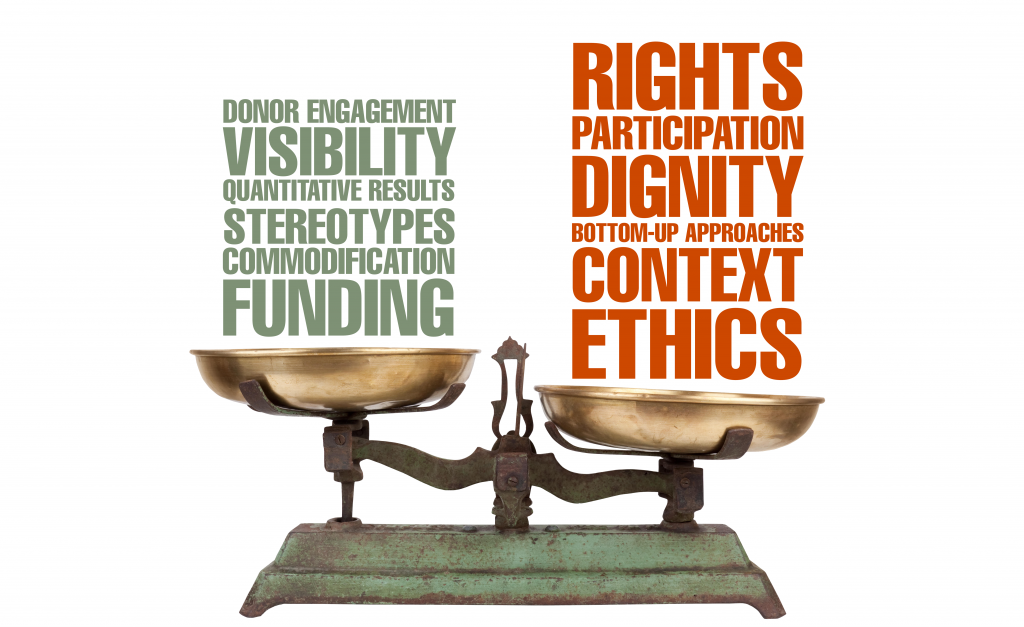A Postcolonial vision of Development
by Julia, Cecilia, Marianna, Claudine and Rhonda
Welcome! This virtual space has been created to share thoughts, impressions and ideas around the theme of Information and Communication Technology for Development (ICT4D) and to hopefully generate critical yet productive discussions on the role of communications in humanitarian aid work. Beside publishing our posts, we also aim to promote interactions between people with a shared interest in this field, so we encourage you to contribute to this project with your comments!
As a group of authors with diverse cultural and professional backgrounds, our posts will focus on different aspects and subfields of ICT4D and look at them from different angles. Our individual views, however, are tightly linked by a shared postcolonial vision of development: postcolonialism emphasises the links between the current state of poverty and vulnerability in some areas of the world and their exploitation during and after colonialism. The hegemony of the West over the rest, which did not end with the formal end of colonialism, still heavily influences global politics as well as human social dynamics, obstructing development and social change. In this context communication plays a crucial role: as Edward W. Said first observed in “Orientalism” (1978), the production of knowledge and narratives that portrayed colonised people as underdeveloped and helpless has been a powerful instrument used to legitimise, establish and preserve western domination. These narratives are still deeply engrained in many aspects human societies worldwide, and the process of decolonization is far from over.
Based on this, our understanding of development involves two main recognitions: firstly, that as important as quantitative practical solutions may be, to achieve durable social change and global equality it is also necessary to generate new narratives and representations aimed at dismantling knowledge structures still rooted in colonialism that are still deeply rooted in both the former colonies (Global South) and former colonisers (Global North), perpetuating injustice. Secondly, that these new representations should promote a vision of humanitarian development work as a form of social justice, rather than charity.
As this blog will look into for the next six weeks, ICTs have an important role to play: they can be a powerful tool to build and spread new narratives and promote rights and participatory methods, but their applied use in development also comes with risks, controversies and paradoxes attached. Intrigued? Keep following us!


